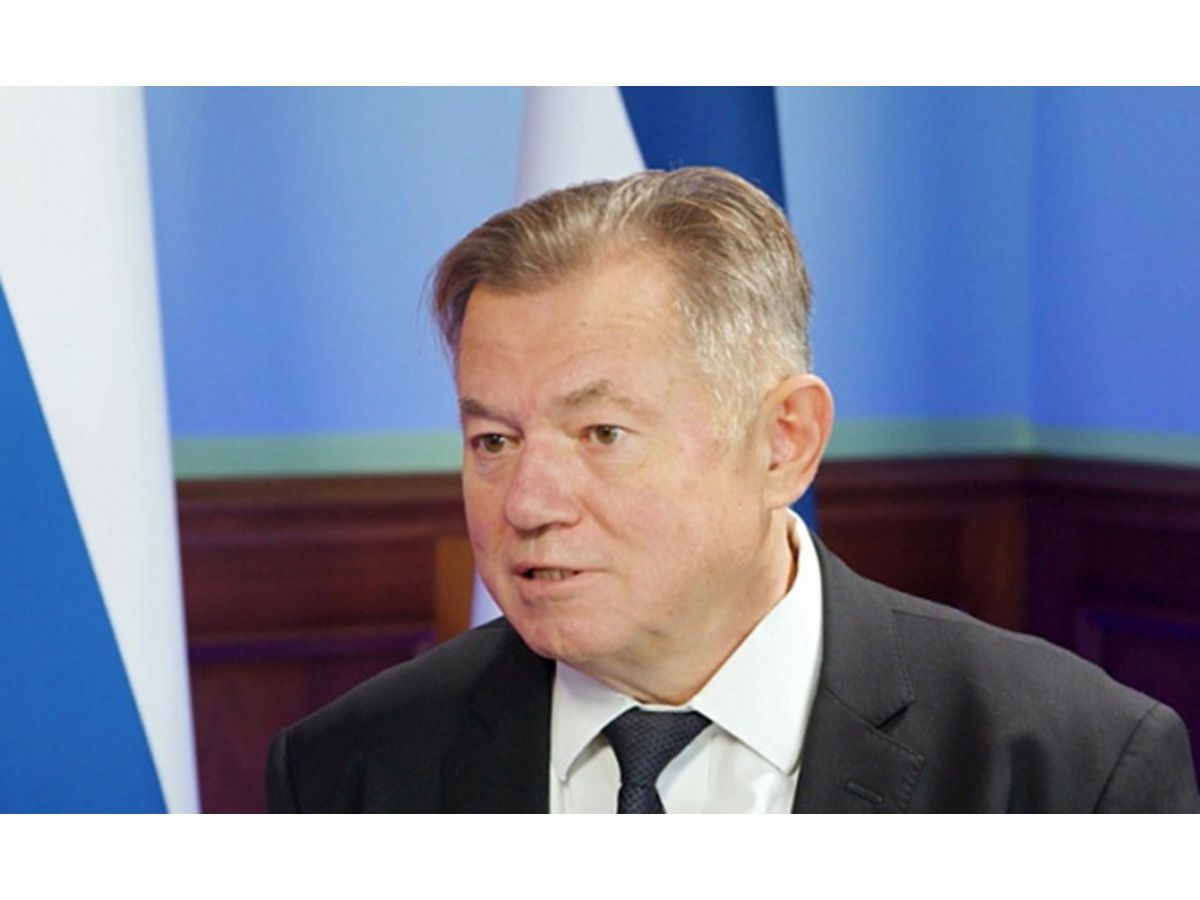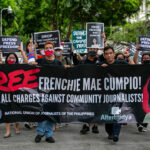
Sergey Glazyev is a Russian economist and politician, Doctor of Economic Sciences, Professor, since 2008, Academician of the Russian Academy of Sciences, foreign member of the National Academy of Sciences of Belarus.
RELATED:
Since Oct. 2019, he has been appointed a member of the Collegium for Integration and Macroeconomics of the Eurasian Economic Commission. He holds several state awards, including the Order of Friendship, the medal of the Security Council of the Russian Federation for services to national security.
In an exclusive interview with TV BRICS, he spoke about the potential of the BRICS single currency for international settlements, the difficulties of its creation and the benefits for the BRICS member states.
How do you assess the emergence of a new settlement currency with a global function? How realistic is it?
I think it is inevitable, because the current monetary and financial situation in the world is irrational. The countries that will determine global economic development are interested in deep reforming of the international financial system.
Today we can already say for sure that in the next 30-40 years the main weight in the growth of the world gross product will be played by the countries of South-East Asia. These are, first, China, India, ASEAN countries, whose currencies are practically not represented today in the world monetary and financial system as world reserve currencies.
���� Iraq Ready to Join BRICS After Banning US Dollar https://t.co/nY6M7AOTKV
— BRICS (@BRICSinfo)
October 16, 2023
The countries that will determine global economic development in the foreseeable future are clearly not interested in preserving the existing monetary and financial system, as there is an imbalance in the proportional ratio.
In trade within the Eurasian Economic Union, we have almost completely switched to national currencies. If we talk about trade with Russia, there is almost 100 per cent substitution of these currencies by the ruble.
In trade with China, we have already halfway replaced Western currencies with national currencies – the ruble and the yuan. Across the entire spectrum of our partners, we see the dollar and the euro being rapidly ousted from international settlements.
Following Russia, we see the same trend in other BRICS countries. In particular, China is now actively expanding the use of the yuan in international trade, and in the area of China’s “One Belt, One Road Initiative”, the yuan is gradually becoming the dominant currency because China is the main investor.
India has announced that it is switching to paying for imports in rupees. We are also aware of the statements of the presidents of Brazil and South Africa on the desirability of introducing a new global settlement currency. In other words, we are now at the first stage of this process.
The BRICS countries and many other countries of the world are moving to a wider use of national currencies in international settlements because they are all convertible in current transactions and are no worse than the currencies of Western countries.
But there is the problem that when you trade in many currencies, you have high costs of arbitrage of these exchange rates. That is, economic entities need to simultaneously consider the fluctuations of national currencies of different countries.
World prices are still linked to the dollar, so these calculations generate a lot of losses. In addition, we face high uncertainty in pricing, so at the next stage it is necessary to detach the prices of world exchange goods from the dollar and move to quoting world exchange goods in other units.
And what are these other units? This is where the idea of introducing a new world settlement currency arises, which would become a common denominator for the formation of world prices for exchange goods. We are working on this problem.
We have a model of such a currency. It is based not only on a basket of national currencies of the member countries, but also on a basket of exchange commodities. The model shows that this currency will be very stable and much more attractive than the dollar, pound, and euro.
BRICS to Completely Ditch the US Dollar in 3 Years pic.twitter.com/ZEWvrKVo4g
— Buildt Hargrid (@BHargrid89717)
October 17, 2023
What are the challenges, and what steps do you think need to be taken to speed up the process of introducing a new international currency?
We need only political will, because technically this currency is almost ready, the software and mathematical tools have been created. In order to launch this currency, we need the political consent of the BRICS countries, three of which have already expressed their support for the idea of introducing a new currency through their heads of state.
We are waiting for the reaction of China and India. The transition to settlements in national currencies is part of the task. And in order to launch such a currency, Russia, as the presiding country next year, could convene an international conference to sign an agreement on the introduction of such a new international settlement currency.
The first basket is formed automatically on the basis of the pool of foreign exchange reserves, which has already been created long ago, and we do not need to invent anything new. The first basket is simply formed on the basis of the pool of currency reserves of the BRICS countries, on the basis of which the new currency is issued.
The second basket is a basket of exchange-traded commodities. In order for this currency to be backed not only by the national currencies of the member countries, but also by something more serious and material, we, as countries that produce and consume most of the world’s exchange commodities, can well form the necessary amount of reserves in these commodities to ensure that they provide, back up this new international settlement currency.
In order for this economic model to work, it is necessary to sign the relevant legal documents that will determine who emits this currency, in what amounts, what are the rules for the emission of this currency, and how settlements are conducted in it.
Amid the ongoing BRICS de-dollarization efforts, the US dollar’s (USD) global reserve status is threatened by government spending. pic.twitter.com/HPeOn2jrcl
— bricscurrency (@bricstokens)
October 21, 2023
The relevant draft international treaty can be done very quickly if there is political will of the participating countries.
As for the economic and mathematical model, it has already been created, and the software can also be finalized quickly, as soon as all the nuances of the architecture and the formation of a new global settlement currency are clear.
It should be understood that this currency is not a substitute for national currencies in any way. It is created exclusively for international settlements.
Therefore, countries continue to work in their national currencies. They can continue to use their national currencies in international settlements. This new instrument is created for the convenience of all member countries.
The issue of emission of this currency can technically be solved in different ways. It can be issued on the basis of the pool of foreign exchange reserves by the New Development Bank of BRICS, if we authorise such a bank. It can be emitted by each party in proportion to its share in the volume of international settlements, i.e. it is a matter of negotiations.
As soon as these technical issues are resolved, we need to prepare a relevant international treaty open for accession by all other countries wishing to join and sign it. I think that in a couple of years such a currency may well appear.
What benefits can the introduction of such a currency bring to the countries of the world and, in particular, to the BRICS countries?
Firstly, by launching such an international settlement currency, we create guarantees against attempts by third countries to interfere in our mutual relations.
Secondly, the introduction of such a currency makes each country’s trade and its position in the international financial system more secure.
Thirdly, the launch of such a currency will give us an opportunity for equal trade, economic and investment cooperation, because the issue of this currency and, consequently, the distribution of commission income will be regulated by an international treaty, will be transparent, and we will be sure that none of our partners abuses the issue of the world currency.
Latin American countries meeting at a summit in Mexico called on the United States to review its immigration policy, which is laden with “inconsistent and selective” measures. pic.twitter.com/xQsSpvmWyC
— teleSUR English (@telesurenglish)
October 23, 2023



